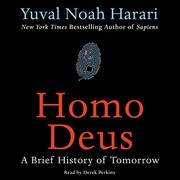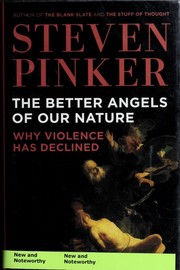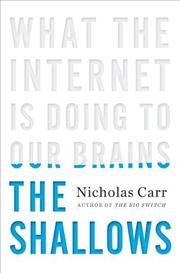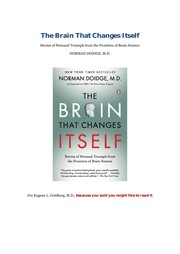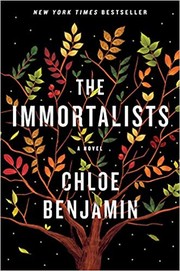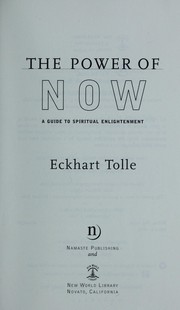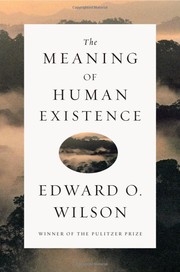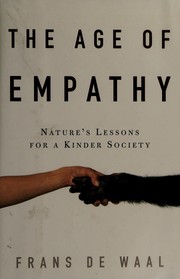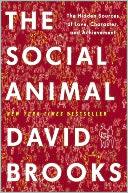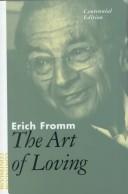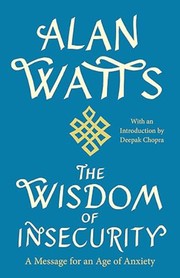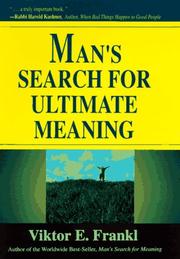Are you searching for a deeper understanding of the human experience? Look no further than these 20 captivating books on what it means to be human. From philosophical explorations to personal memoirs, these books offer profound insights into the complexities of human nature. Whether you’re craving a thought-provoking read or seeking answers to life’s big questions, these titles will satisfy your curiosity and ignite your imagination. Let these books be your guide as you embark on a journey of self-discovery and empathy. Dive into the pages of these ‘what it means to be human books’ and unlock the mysteries of the human soul.
Contents
- 1 20 Best What It Means To Be Human Books
- 2 Sapiens: A Brief History of Humankind
- 3 The Gene: An Intimate History
- 4 Homo Deus: A Brief History of Tomorrow
- 5 The Immortal Life of Henrietta Lacks
- 6 The Sixth Extinction: An Unnatural History
- 7 The Better Angels of Our Nature: Why Violence Has Declined
- 8 The Shallows: What the Internet Is Doing to Our Brains
- 9 The Emperor of All Maladies: A Biography of Cancer
- 10 The Man Who Knew Infinity: A Life of the Genius Ramanujan
- 11 The Hidden Life of Trees: What They Feel, How They Communicate
- 12 The Brain that Changes Itself: Stories of Personal Triumph from the Frontiers of Brain Science
- 13 The Immortalists
- 14 The Power of Now: A Guide to Spiritual Enlightenment
- 15 The Soul of an Octopus: A Surprising Exploration into the Wonder of Consciousness
- 16 The Meaning of Human Existence
- 17 The Age of Empathy: Nature’s Lessons for a Kinder Society
- 18 The Social Animal: The Hidden Sources of Love, Character, and Achievement
- 19 The Art of Loving
- 20 The Wisdom of Insecurity: A Message for an Age of Anxiety
- 21 Man’s Search for Meaning
- 22 Final Thoughts on Best What It Means To Be Human Books
- 23
20 Best What It Means To Be Human Books
Sapiens: A Brief History of Humankind
by Yuval Noah Harari
Sapiens: A Brief History of Humankind by Yuval Noah Harari is a captivating exploration of the history of Homo sapiens. This thought-provoking book delves into the origins of our species, tracing our development from insignificant apes to the dominant force on the planet. It offers a deep dive into the cognitive, agricultural, and scientific revolutions that have shaped human history, and challenges readers to consider the impact of our actions on the world around us.
Harari’s narrative is both informative and engaging, offering a fresh perspective on the human experience. Through his insightful analysis, he prompts readers to contemplate their place in the world and consider the legacy they will leave behind. Sapiens is a must-read for anyone seeking a deeper understanding of our species and the forces that have shaped our society. It is a profound book about what it means to be human, and will leave readers pondering the intricacies of our existence long after they turn the final page.
The Gene: An Intimate History
by Siddhartha Mukherjee
The Gene: An Intimate History by Siddhartha Mukherjee is a captivating exploration of the complex and profound role that genetics plays in shaping our lives. This thought-provoking book delves into the history of genetics, from its discovery to the present day, and examines the ethical and social implications of our growing understanding of the genome. As Mukherjee weaves together personal anecdotes, scientific research, and historical insights, he creates a compelling narrative that sheds light on the fundamental building blocks of life.
With a keen eye for storytelling and a deep understanding of the subject matter, The Gene offers readers a profound and intimate look at the essence of what it means to be human. Mukherjee’s exploration of the genetic code and its impact on our lives is not only informative but also deeply moving, prompting readers to contemplate the very essence of their existence. Ultimately, The Gene is a book about what it means to be human, offering a rich and illuminating perspective on the intricate interplay between genetics, identity, and the human experience.
Homo Deus: A Brief History of Tomorrow
by Yuval Noah Harari
Homo Deus: A Brief History of Tomorrow by Yuval Noah Harari is a thought-provoking exploration of the future of humanity. In this compelling book, Harari delves into the possible trajectory of human development, using historical, scientific, and philosophical perspectives to examine where we might be headed as a species. The book challenges readers to contemplate our place in the world and what it means to be human in the face of rapid technological advancement and potential future paradigms.
Harari’s insightful analysis and engaging writing style make Homo Deus a captivating and enlightening read. The book prompts readers to question the very essence of human existence and consider the implications of our evolving relationship with technology, biology, and society. With its thought-provoking content and compelling arguments, Homo Deus offers a fresh and stimulating perspective on what it means to be human in the context of a rapidly changing world. This is a must-read for anyone interested in the future of humanity and our place within it.
The Immortal Life of Henrietta Lacks
by Rebecca Skloot
The Immortal Life of Henrietta Lacks by Rebecca Skloot is a fascinating and thought-provoking book on the essence of human existence. It delves into the true story of Henrietta Lacks, a poor African American woman whose cells were taken without her knowledge in 1951 and became one of the most important tools in medicine, leading to countless scientific breakthroughs. Skloot skillfully weaves together the compelling narrative of Henrietta’s life, the ethical implications of her cells’ use, and the impact on her family.
This book about what it means to be human raises important questions about identity, consent, and the exploitation of marginalized communities. It explores the complex relationship between science and ethics, shedding light on the human cost of medical advancement. Through Henrietta’s story, Skloot prompts readers to consider the impact of scientific progress on individuals and society as a whole, making it a powerful and poignant what it means to be human book.
The Sixth Extinction: An Unnatural History
by Elizabeth Kolbert
The Sixth Extinction: An Unnatural History by Elizabeth Kolbert is a captivating exploration of the ongoing mass extinction of species on Earth. Through meticulous research and compelling storytelling, Kolbert delves into the history of previous extinctions and the current human-induced crisis that is driving countless species to the brink of extinction. The book is a powerful wake-up call, shedding light on the devastating impact of human activities such as habitat destruction, climate change, and pollution on the delicate balance of life on our planet.
With a keen eye for detail and a gift for weaving together scientific evidence with personal narratives, Kolbert presents a thought-provoking examination of the interconnectedness of all life forms and the implications of our actions on the future of biodiversity. The Sixth Extinction is not just a book about the loss of species; it is a profound reflection on what it means to be human and the responsibility we bear for the well-being of our planet and its inhabitants.
The Better Angels of Our Nature: Why Violence Has Declined
by Steven Pinker
The Better Angels of Our Nature: Why Violence Has Declined by Steven Pinker is a thought-provoking book on what it means to be human. Pinker explores the history of violence and argues that, contrary to popular belief, we are living in the most peaceful era in human existence. Through meticulous research and compelling analysis, Pinker demonstrates how violence has steadily decreased over the centuries, and he delves into the psychological, cultural, and societal factors that have contributed to this decline. By examining human nature and the forces that shape our behavior, Pinker offers a fascinating insight into what it means to be human and how our species has evolved over time. His engaging writing style and ability to distill complex ideas make this book about what it means to be human a captivating and enlightening read for anyone interested in the human experience.
The Shallows: What the Internet Is Doing to Our Brains
by Nicholas Carr
The Shallows: What the Internet Is Doing to Our Brains by Nicholas Carr is a thought-provoking exploration of the impact of the internet on our cognitive abilities and the way we think. Carr delves into the ways in which the constant distractions and information overload of the online world are shaping our brains, altering our attention spans, and ultimately changing the way we process information. This book provides a compelling argument for the idea that our reliance on the internet is fundamentally changing what it means to be human, as it challenges our ability to focus, contemplate, and engage in deep, meaningful thought.
Carr’s engaging and accessible writing style makes this book a must-read for anyone interested in the intersection of technology and humanity. It offers valuable insights into the ways in which our online habits are shaping our brains and influencing our behaviors. The Shallows is a timely and important book that raises essential questions about the impact of the digital age on what it means to be human.
The Emperor of All Maladies: A Biography of Cancer
by Siddhartha Mukherjee
The Emperor of All Maladies: A Biography of Cancer by Siddhartha Mukherjee is a deeply insightful exploration of the history, science, and personal experiences surrounding one of the most formidable diseases known to humanity. This Pulitzer Prize-winning book delves into the complex and often harrowing story of cancer, from its earliest documented appearances to the most recent breakthroughs in treatment and research.
Mukherjee’s writing is both captivating and informative, providing a comprehensive overview of the disease while also drawing on the emotional and human aspects of the struggle against cancer. This book is not just a scientific study; it is a profound reflection on the resilience and determination of the human spirit in the face of a relentless adversary. It is a book about what it means to be human in the face of suffering, hope, and the quest for understanding and healing. Mukherjee’s work is an essential read for anyone seeking a deeper understanding of the impact of cancer and the ongoing battle to conquer it.
The Man Who Knew Infinity: A Life of the Genius Ramanujan
by Robert Kanigel
The Man Who Knew Infinity: A Life of the Genius Ramanujan by Robert Kanigel is a captivating biography that delves into the extraordinary life of the brilliant mathematician Srinivasa Ramanujan. This book offers a fascinating exploration of Ramanujan’s journey from his humble beginnings in India to his groundbreaking work in the field of mathematics. Through meticulous research and engaging storytelling, Kanigel paints a vivid portrait of Ramanujan’s unparalleled intellect and his struggles with personal and professional challenges.
More than just a biography, The Man Who Knew Infinity is a profound meditation on the human spirit and the pursuit of knowledge. It offers insight into the resilience and determination of the human mind, as well as the complexities of human relationships and societal barriers. This book provides a deeper understanding of the human experience and the relentless pursuit of truth and understanding. It is a must-read for anyone interested in a thought-provoking exploration of what it means to be human.
The Hidden Life of Trees: What They Feel, How They Communicate
by Peter Wohlleben
The Hidden Life of Trees: What They Feel, How They Communicate by Peter Wohlleben is a fascinating exploration into the secret world of trees. In this illuminating book, Wohlleben reveals the astonishing ways in which trees communicate, cooperate, and care for each other in the forest. Through a combination of scientific research and personal observations, the author paints a vivid picture of the interconnectedness and resilience of these ancient beings.
Wohlleben’s writing invites readers to reconsider their understanding of the natural world and contemplate the profound connections between humans and trees. This book offers a unique perspective on the intelligence and emotions of trees, prompting readers to reflect on the parallels between the lives of trees and our own experiences.
Ultimately, The Hidden Life of Trees is more than a book about the scientific discoveries of the forest; it is a thought-provoking exploration of what it means to be human, offering insights into the importance of community, communication, and empathy. This book will leave readers with a newfound appreciation for the intricate and complex world of trees, and a deeper understanding of the interconnectedness of all living beings.
The Brain that Changes Itself: Stories of Personal Triumph from the Frontiers of Brain Science
by Norman Doidge
The Brain that Changes Itself by Norman Doidge is a fascinating book about neuroplasticity and the remarkable ability of the brain to rewire and adapt. Through captivating stories of personal triumph, Doidge explores the frontiers of brain science and delves into the groundbreaking research that is revolutionizing our understanding of the human brain. This book is not just about the science of neuroplasticity; it is a profound exploration of the resilience and adaptability of the human spirit.
As readers journey through the pages of this book, they will encounter incredible tales of individuals who have overcome seemingly insurmountable obstacles through the power of neuroplasticity. From stroke victims learning to walk again to individuals with learning disorders finding new ways to excel, The Brain that Changes Itself is a captivating exploration of the human capacity for growth and transformation. Ultimately, this book offers a profound insight into the essence of what it means to be human, showcasing the remarkable potential for change and adaptation within each of us.
The Immortalists
by Chloe Benjamin
The Immortalists by Chloe Benjamin is a captivating and thought-provoking novel that delves into the timeless question of the human condition. The book follows the lives of four siblings who, after visiting a psychic as children, learn the dates of their deaths. This knowledge shapes their decisions and actions as they navigate life’s challenges and triumphs. Through the experiences of these characters, the novel explores the complexities of fate, mortality, and the pursuit of happiness.
Benjamin’s compelling storytelling and rich character development make this a poignant and immersive read. The Immortalists is a book about what it means to be human, and it delves into themes of family, love, and the quest for meaning. It raises profound questions about the nature of existence and the choices we make in the face of uncertainty. This novel is a powerful exploration of the human experience, and it will leave readers pondering the intricacies of life long after they’ve turned the final page.
The Power of Now: A Guide to Spiritual Enlightenment
by Eckhart Tolle
The Power of Now is a profound book on what it means to be human that delves into the nature of human consciousness and spirituality. Written by renowned spiritual teacher Eckhart Tolle, this transformative guide offers practical insights and exercises to help readers break free from the grip of their minds and live in the present moment.
Tolle explores the concept of ego, the root of human suffering, and provides a roadmap for achieving inner peace and enlightenment. Through his clear and accessible writing style, he invites readers to awaken to their true essence and experience the joy of living in the now.
This book about what it means to be human has resonated with millions of readers around the world, offering a path to transcend the limitations of the mind and connect with the deeper truth of existence. Whether you’re new to spiritual teachings or seeking a deeper understanding of consciousness, The Power of Now is a timeless guide to discovering what it means to be human.
The Soul of an Octopus: A Surprising Exploration into the Wonder of Consciousness
by Sy Montgomery
The Soul of an Octopus by Sy Montgomery is a captivating exploration of the mysterious world of these intelligent creatures and a thought-provoking book on what it means to be human. Through her own personal experiences and interactions with octopuses, Montgomery delves into the depths of consciousness, emotion, and intelligence, challenging our perceptions of non-human minds.
This insightful book about what it means to be human takes readers on a journey into the alien yet familiar world of octopuses, highlighting their complex behaviors and surprising abilities. Montgomery’s vivid storytelling and deep admiration for these creatures will leave you in awe of their intelligence and their ability to form connections with humans.
Whether you’re a nature enthusiast, a science buff, or simply curious about the intricacies of animal consciousness, The Soul of an Octopus offers a unique perspective on what it means to be human. It’s a fascinating and profound exploration of the interconnectedness of all living beings, inviting readers to contemplate our place in the natural world.
The Meaning of Human Existence
by Edward O. Wilson
The Meaning of Human Existence by Edward O. Wilson is a thought-provoking exploration of the essence of human existence. In this captivating book on what it means to be human, Wilson delves into the complexities of human nature, evolution, and our place in the natural world. Through a blend of scientific research and philosophical reflection, he tackles fundamental questions about our origins, purpose, and future as a species.
Wilson’s writing is both insightful and accessible, making this book about what it means to be human a compelling read for anyone interested in anthropology, biology, or the human experience. He challenges readers to contemplate the significance of our existence and our interconnectedness with other life forms on Earth, offering a fresh perspective on humanity’s place in the universe.
With its engaging narrative and profound insights, The Meaning of Human Existence is a must-read for anyone seeking a deeper understanding of what it means to be human.
The Age of Empathy: Nature’s Lessons for a Kinder Society
by Frans de Waal
The Age of Empathy: Nature’s Lessons for a Kinder Society by Frans de Waal is a thought-provoking book on what it means to be human. De Waal, a renowned primatologist and ethologist, explores the concept of empathy in various animal species, including humans, and its significance in shaping our society. Through engaging anecdotes and scientific research, he argues that empathy is a fundamental trait that has evolved over time and is essential for maintaining social cohesion and cooperation.
This book about what it means to be human challenges the traditional view of human nature as inherently competitive and selfish, offering a compelling argument for the importance of empathy in creating a more compassionate and harmonious world. De Waal’s insightful exploration of empathy as a driving force in social behavior and morality provides a fascinating perspective on what it means to be human. With its accessible writing and profound insights, The Age of Empathy is a compelling read for anyone interested in understanding the complexities of human nature and the potential for creating a kinder society.
The Social Animal: The Hidden Sources of Love, Character, and Achievement
by David Brooks
The Social Animal: The Hidden Sources of Love, Character, and Achievement by David Brooks is a captivating book on what it means to be human. Brooks delves into the depths of human behavior and explores the subconscious forces that shape our lives. Through the fictional story of Erica and Harold, he paints a vivid picture of the influences that mold our thoughts, emotions, and actions.
This book about what it means to be human takes readers on a journey through the complexities of the human mind, uncovering the hidden sources of love, character, and achievement. With insights from psychology, sociology, and neuroscience, Brooks provides a compelling narrative that challenges our understanding of ourselves and others.
By weaving together personal stories and scientific research, The Social Animal offers a thought-provoking exploration of human nature. It sheds light on the inner workings of the human psyche and offers valuable lessons on empathy, resilience, and personal growth. This book is a must-read for anyone seeking a deeper understanding of what it means to be human.
The Art of Loving
by Erich Fromm
The Art of Loving by Erich Fromm is a thought-provoking exploration of the complexities of human relationships and the nature of love. This profound book delves into the psychology of love, examining the cultural and societal influences that shape our understanding of it. Fromm argues that love is not just a feeling, but an art that requires knowledge and effort to master, much like any other creative endeavor. By blending psychoanalysis, philosophy, and sociology, Fromm provides a compelling perspective on what it means to be human and the universal need for connection and intimacy. He challenges readers to reexamine their preconceived notions about love and offers valuable insights into how to cultivate meaningful and fulfilling relationships. The Art of Loving is a timeless classic that continues to resonate with readers, offering timeless wisdom and guidance on the intricacies of human connection.
The Wisdom of Insecurity: A Message for an Age of Anxiety
by Alan Watts
The Wisdom of Insecurity by Alan Watts is a thought-provoking book that delves into the fundamental questions of existence and human experience. Through a blend of Eastern philosophy and Western psychology, Watts explores the concept of security and the constant pursuit of certainty in our lives. He challenges the reader to embrace the inherent uncertainty of life and to find wisdom in the midst of insecurity.
This book is a profound reflection on the human condition, offering insights into the nature of fear, anxiety, and the relentless desire for control. Watts argues that true security is not found in external circumstances or material possessions, but in embracing the present moment and accepting the inherent unpredictability of life.
With eloquent prose and profound wisdom, The Wisdom of Insecurity is a timeless exploration of what it means to be human, offering a fresh perspective on the nature of existence and the pursuit of happiness. It is a must-read for anyone seeking a deeper understanding of the human experience.
Man’s Search for Meaning
by Viktor E. Frankl
Man’s Search for Meaning by Viktor E. Frankl is a profound exploration of the human experience in the face of extreme suffering. In this seminal work, Frankl, a Holocaust survivor and psychiatrist, delves into the fundamental question of existence and the search for meaning in life. Through his harrowing experiences in Nazi concentration camps, Frankl examines the resilience of the human spirit and the capacity for hope in the most dire circumstances.
Divided into two parts, the first section of the book describes Frankl’s own experiences in the concentration camps, while the second section outlines his psychotherapeutic approach, known as logotherapy, which emphasizes the importance of finding meaning in life as a driving force for human existence.
This book on what it means to be human is a timeless testament to the strength of the human spirit and the ability to find purpose and meaning in the face of suffering. It is a must-read for anyone seeking a deeper understanding of the human experience.
Final Thoughts on Best What It Means To Be Human Books
Exploring the depths of human existence, these 20 best books about What It Means To Be Human offer profound insights and thought-provoking perspectives. From philosophy to psychology, literature to science, these books navigate the complexities of our humanity with empathy and understanding. Whether you’re seeking a deeper understanding of yourself or the world around you, these books are essential reading for anyone pondering the human experience.
Which book about What It Means To Be Human is best?
The best book on What It Means To Be Human can vary with personal preference, but three widely recommended titles are:
- Sapiens: A Brief History of Humankind by Yuval Noah Harari,
- The Gene: An Intimate History by Siddhartha Mukherjee,
- Homo Deus: A Brief History of Tomorrow by Yuval Noah Harari.
Each offers valuable insights and could be a great starting point.
What are the best books to learn about What It Means To Be Human?
For those looking to learn about What It Means To Be Human, there is a wealth of literature that can provide a comprehensive understanding of the subject. Some of the most highly recommended books include:
- Sapiens: A Brief History of Humankind by Yuval Noah Harari,
- The Gene: An Intimate History by Siddhartha Mukherjee,
- Homo Deus: A Brief History of Tomorrow by Yuval Noah Harari,
- The Immortal Life of Henrietta Lacks by Rebecca Skloot,
- The Sixth Extinction: An Unnatural History by Elizabeth Kolbert,
- The Better Angels of Our Nature: Why Violence Has Declined by Steven Pinker,
- The Shallows: What the Internet Is Doing to Our Brains by Nicholas Carr,
- The Emperor of All Maladies: A Biography of Cancer by Siddhartha Mukherjee,
- The Man Who Knew Infinity: A Life of the Genius Ramanujan by Robert Kanigel,
- The Hidden Life of Trees: What They Feel, How They Communicate by Peter Wohlleben
These books offer a range of perspectives on What It Means To Be Human, covering various aspects and approaches to the subject.
What are the best books about What It Means To Be Human?
The best books about What It Means To Be Human are:
- Sapiens: A Brief History of Humankind by Yuval Noah Harari,
- The Gene: An Intimate History by Siddhartha Mukherjee,
- The Brain that Changes Itself: Stories of Personal Triumph from the Frontiers of Brain Science by Norman Doidge,
- The Immortalists by Chloe Benjamin,
- The Emperor of All Maladies: A Biography of Cancer by Siddhartha Mukherjee,
- The Better Angels of Our Nature: Why Violence Has Declined by Steven Pinker.
Each offers unique insights into the subject. While these books about What It Means To Be Human are highly regarded, it’s important to note that any list of ‘best’ books is subjective and reflects a range of opinions.
What are the best What It Means To Be Human books of all time?
Choosing the best What It Means To Be Human books of all time can vary depending on who you ask, but five titles that are often celebrated include
- Sapiens: A Brief History of Humankind by Yuval Noah Harari,
- The Gene: An Intimate History by Siddhartha Mukherjee,
- The Sixth Extinction: An Unnatural History by Elizabeth Kolbert,
- The Emperor of All Maladies: A Biography of Cancer by Siddhartha Mukherjee,
- and The Brain that Changes Itself: Stories of Personal Triumph from the Frontiers of Brain Science by Norman Doidge.
Each of these books has made a significant impact in the field of What It Means To Be Human and continues to be influential today.



